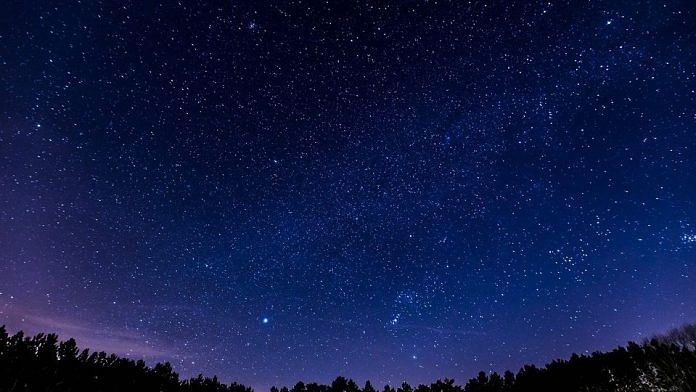New Delhi: School and college students in India are getting a unique opportunity to name a planet and its star located 340 light years away from Earth.
As part of its centenary celebrations, Paris-based International Astronomical Union (IAU), the authority responsible for assigning official designations and names to celestial bodies, is giving each country a chance to name one planetary system comprising an exoplanet and its host star.
IUA is a global association of professional astronomers, at the PhD level and beyond.
The Indian IAU National Outreach Coordinator is now inviting suggestions from college and school students to name a planet and its star.
Exoplanets
An exoplanet is defined as any planet outside the solar system. Thousands of exoplanets and stars have been discovered in recent years and each cosmic body presents a unique opportunity to learn more about the universe and understand the origins of life.
Each nation’s designated star is visible from the country and sufficiently bright to be observed through small telescopes.
Following the first NameExoWorlds campaign in 2015, which named 31 exoplanets in 19 planetary systems, this is the second time in history that a similar campaign has been organised by the IAU.
“This exciting event invites everyone worldwide to think about their collective place in the universe, while stimulating creativity and global citizenship. The NameExoworlds initiative reminds us that we are all together under one sky,” Debra Elmegreen, IAU President Elect, said in a statement.
Also read: 2 possible gravitational waves spotted, scientists suspect black hole mergers caused both
HD 86081 — the planetary system for India
After scanning through a range of confirmed exoplanets and their host stars, the IAU100 NameExoWorlds Steering Committee has assigned the planetary system with the star HD 86081 to India.
Located about 340 light years away from the Earth, the HD 86081 is slightly hotter, larger and older than our Sun, the IAU has said in a release.
Its exoplanet — HD 86081 b — orbits around the star. The exoplanet appears to be similar to Jupiter in size and mass, but orbits very close to its star. It is expected that this planet will have very high temperature. The star is located in the constellation of Sextans and visible in Indian skies.
The contest
The contest invites name suggestions for the exoplanet HD 86081 b and its parent star from school and college students. The entries can be sent through this link till 15 August.
Students in the age group 10-18 years (school level) can suggest a name for the exoplanet while those in the age group 18 – 22 years (college level) can suggest a name for the star.
A national vote on about 10 shortlisted names will take place from 1 October to 1 November. The final set of names will be sent to the IAU for consideration. After validation by the IAU100 NameExoWorlds Steering Committee, the global results will be announced in December 2019.
The winning names will be used parallel with the existing scientific nomenclature for the objects, with due credit to the persons that proposed them.
To ensure a fair process of naming these two bodies, a senior level national committee has also been specially created by the Indian IAU National Outreach Coordinator (IAU NOC). The national committee is organising this competition in association with the Astronomical Society of India.
Also read: Lunar and solar eclipses make animals do strange things




Interesting. This is a nice way to engage youngsters in the oldest science in human civilisation. Hope there are also efforts to designating areas for amateur astronomers, that are completely free of light pollution, and in India, also of air pollution.